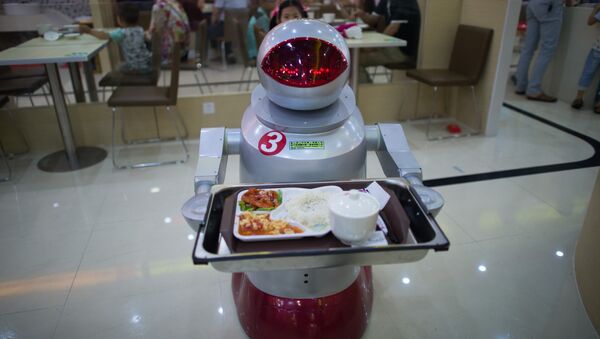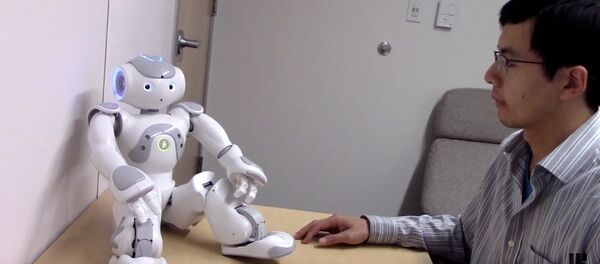"The robots weren't able to carry soup or other food steady and they would frequently break down. The boss has decided never to use them again," one employee told the newspaper.
"Their skills are somewhat limited," another waiter explained.
"They can't take orders or pour hot water for customers," and they had to follow a fixed route that sometimes resulted in clashes.
For comparison's sake, in 2013, the average monthly pay that a human waiter in China received was 2,240 yuan ($346).
"The robots can attract plenty of customers, but they definitely can't reduce the need for human labor," said one restaurant boss.
Zhang Yun, vice-principal of Guangdong University of Technology, explained to Worker's Daily that while robots have proven excellent at improving the productivity of repetitive tasks on the factory floor, the bots are unable to perform well in environments where frequent human interaction is necessary.



